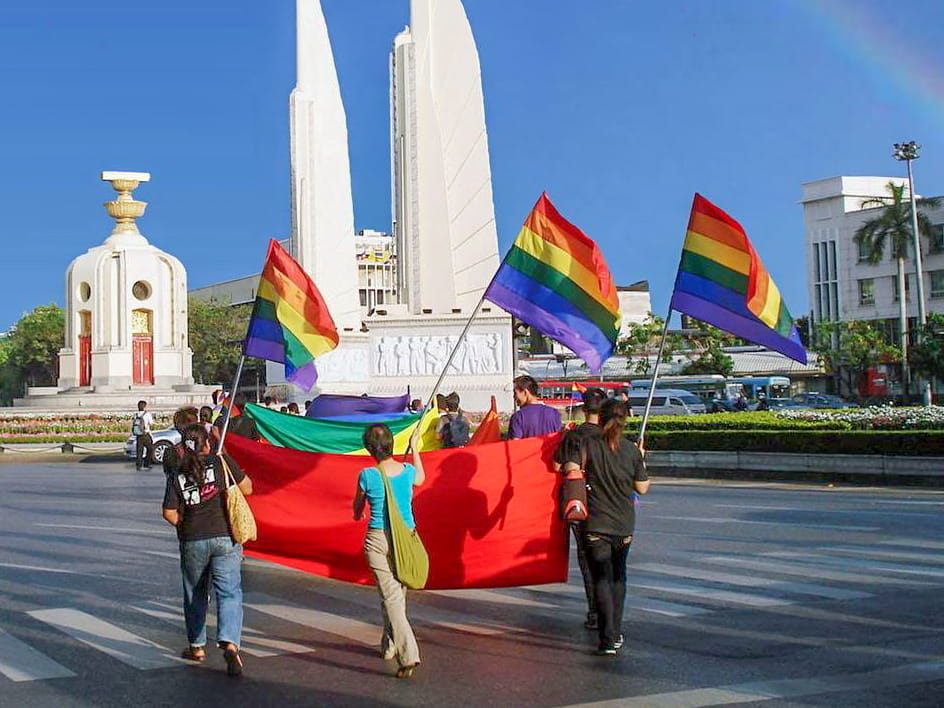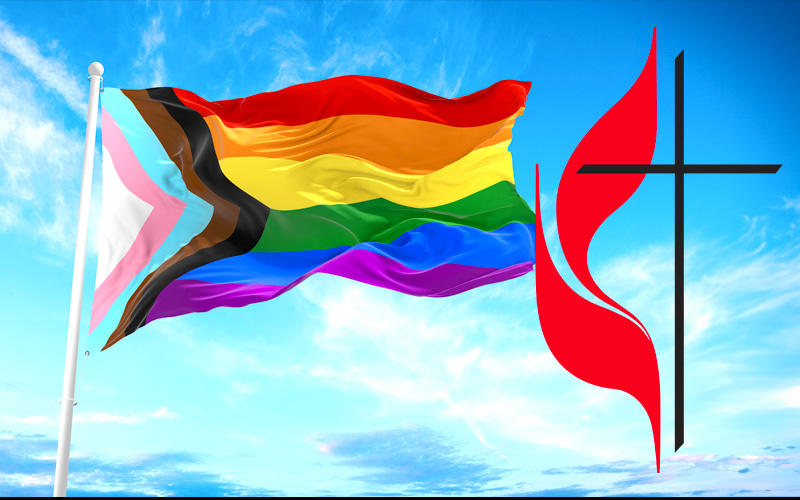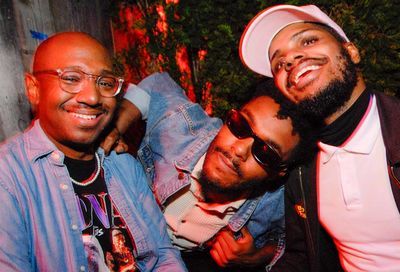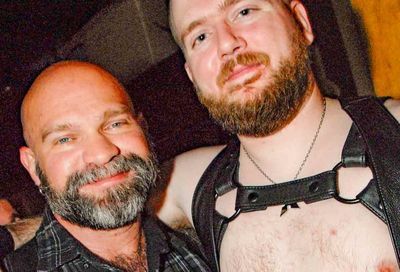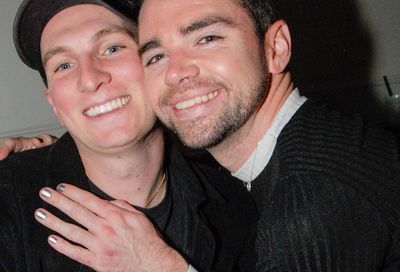Right of Refusal
Will business owners refuse service to customers?

“I’ve known a couple of photographers who have turned down LGBT clients for their religious views, who then, in turn became my clients,” says photographer Lisa Otto. “So refuse away, because I have absolutely no problem. I don’t care who you love, what type of house you live in, what your religion is. As far as I’m concerned, if you’re in love, I’ll put you in front of my camera.”
For the Palm Harbor, Florida-based Otto, who specializes in wedding photography, sexual orientation isn’t a factor in determining whether she shoots a wedding. In fact, word-of-mouth recommendations from satisfied same-sex customers have helped fuel her business.
So far, Otto has not received any negative feedback for her decision to photograph same-sex weddings. She also hasn’t received any negative reviews or comments on her Facebook page, and no one has ever confronted her face-to-face.
But that doesn’t mean there’s not a risk weighing in on a potentially controversial issue. Earlier this year, a bakery in Longwood, Fla., came under fire for refusing to make a cake bearing the phrase, “We do not support gay marriage.” Word got out and the business started receiving threatening phone calls from opponents of marriage equality.
Meanwhile, bakers in Colorado and Oregon — both states with nondiscrimination ordinances that include sexual orientation — have argued that their religious beliefs should allow them to refuse to make wedding cakes for same-sex couples.
With these disagreements in mind, federal lawmakers are now taking the debate out of the kitchens and floral shops and into the halls of Congress by introducing two bills that appear to be diametrically opposed. The First Amendment Defense Act would prevent the government from taking retaliatory action against people or businesses who act in accordance with their beliefs that marriage is the union of one man and one woman, and that sexual activity should be reserved for marriage. The Equality Act, meanwhile, would amend the Civil Rights Act to include nondiscrimination protections for sexual orientation and gender identity.
Because of the potentially controversial nature of these bills, many businesses avoid taking a position. Of more than 40 bakeries, florists or photographers from the states of Virginia, Ohio, Kentucky, North Carolina and Florida — all of which currently lack LGBT nondiscrimination protections — contacted by Metro Weekly, only four would comment on the record.
As a small business owner working in the wedding industry, Lisa Otto has no problem expressing her point of view. She acknowledges that others may feel differently, but believes that refusing to serve the LGBT community eventually hurts a business’s bottom line.
“When you put that stigma on yourself, as far as not being willing to serve everyone, bad news spreads a whole lot faster than good news,” Otto says. “And I think they do eventually hurt themselves…. If I open a business, I have to serve everybody.”
Otto’s view is shared by the Human Rights Campaign, which is currently pushing for passage of the Equality Act.
“If you open your business to the public, you should serve the public on a non-discriminatory basis,” says David Stacy, director of government relations for HRC. “So if you are providing wedding cakes, for example, and you are selling wedding cakes at your bakery, there’s no reason in the world that you should be able to say ‘I’m going to sell wedding cakes to couples whose weddings I agree with, and I’m not going to sell wedding cakes to couples whose weddings I don’t agree with.'”
Stacy notes that the number of conflicts between LGBT advocates and religious business owners are small in number, despite the amount of press they get, adding that the more prominent cases have become “cause celebres” for the anti-LGBT movement to latch onto while opposing equality.
“If your religious beliefs are such that you just cannot interact with LGBT people and treat them equally when you’re engaged in commerce, perhaps you should find a different job,” he says.
Ryan T. Anderson, a fellow with the Heritage Foundation, opposes the Equality Act, believing that any conflicts between business owners and potential clients are better resolved on the local — rather than federal — level.
“Most of these decisions are going to be better resolved if we allow experimentation with different policies to figure out what works best for all parties involved,” Anderson says. “If there’s a bed and breakfast somewhere run by conservative evangelicals or Orthodox Jews, and they have a problem renting out the honeymoon suite to a same-sex couple, I say freedom should prevail here. There are plenty of other options for your honeymoon. We don’t need the federal government telling a small bed-and-breakfast that they can’t engage in this.”
Anderson is skeptical of the idea that most major corporations would engage in arbitrary discrimination against LGBT people, noting that doing so would likely not be in its economic interest. But Anderson also says that there should be exceptions for smaller businesses.
“When someone does think that sexual orientation and gender identity matters for the mission of their institution or because of their moral and religious views, I don’t see why we can’t tolerate them, why we can’t be a pluralistic society that says that a 70-year-old evangelical grandmother has a right to say ‘I don’t do flowers for a same-sex wedding,'” says Anderson, citing a case where a florist in Washington State ran afoul of a state’s nondiscrimination law. “I don’t know if we need a federal law that would coerce everyone on this.”
There appears to be at least anecdotal evidence that being LGBT-friendly is good for business. The wedding-related business owners who responded to Metro Weekly said they promote a welcoming atmosphere at their stores.
“I treat everything the same,” says Kimberly McDonald of Simply Desserts, a bakery in Fairfax County, Va., noting that she’s catered a same-sex wedding and has an equal employment policy.
“We do a lot of gay weddings,” says Meghan DeAngelis Lorenzetti, CEO of Kendall’s Cakes, in Falls Church, Va. “And they are actually some of my favorites because they just seem happier and more excited to be able to marry. I honestly don’t follow politics that much, but I think everyone should have the same ability to do what they want. If you want to get married, you should get married.”
Mishele McKissack, of Decadent Designs Bakery in Charlotte, N.C., believes “if you’re a small business, then you’re open to everything and everybody. We love all of our customers, and treat everybody equally…. I’m not in favor of any legislation that would allow somebody to not provide their service to somebody for their personal choices. I don’t think that’s anybody’s business.”
Support Metro Weekly’s Journalism
These are challenging times for news organizations. And yet it’s crucial we stay active and provide vital resources and information to both our local readers and the world. So won’t you please take a moment and consider supporting Metro Weekly with a membership? For as little as $5 a month, you can help ensure Metro Weekly magazine and MetroWeekly.com remain free, viable resources as we provide the best, most diverse, culturally-resonant LGBTQ coverage in both the D.C. region and around the world. Memberships come with exclusive perks and discounts, your own personal digital delivery of each week’s magazine (and an archive), access to our Member's Lounge when it launches this fall, and exclusive members-only items like Metro Weekly Membership Mugs and Tote Bags! Check out all our membership levels here and please join us today!






